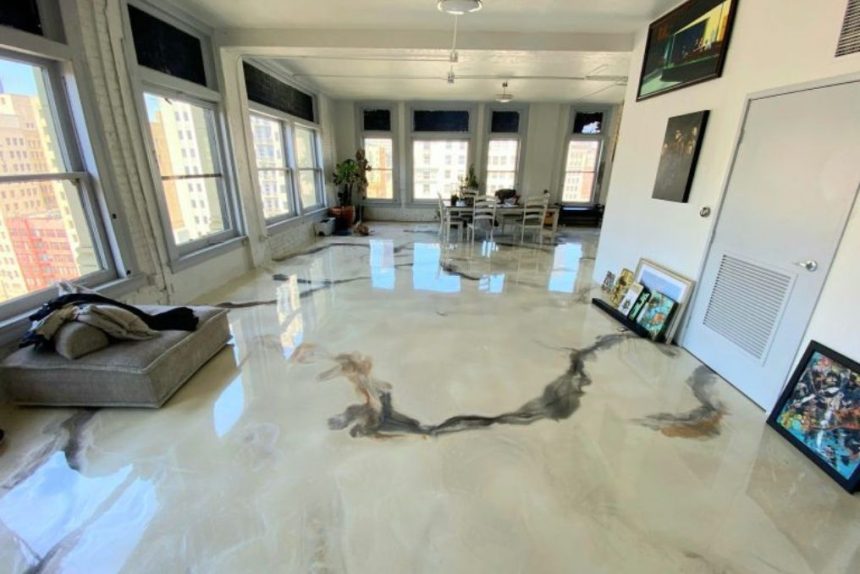Does Epoxy Flooring Increase Home Value
Epoxy flooring has become a popular choice for homeowners due to its durability, easy maintenance, and resistance to chemicals and stains.
We will explore the various types of epoxy flooring available, the benefits it offers, and how it can potentially attract buyers and boost your property’s value.
Factors such as the quality of the flooring, location of the property, market demand, and installation costs will all be discussed to help you determine if epoxy flooring is a worthy long-term investment for your home.
What Is Epoxy Flooring?
Epoxy flooring is a popular choice for homeowners seeking a cost-effective and durable solution to enhance the aesthetic appeal of their properties. It involves the installation of a specialized coating on the floor surface, providing not only a visually appealing finish but also offering long-term performance and durability.
Learn more: Is Epoxy Flooring Good For Living Room
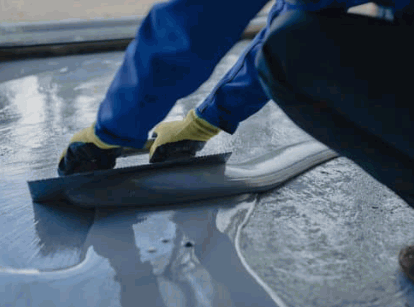
How Is Epoxy Flooring Applied?
The application of epoxy flooring involves a meticulous process that starts with preparing the existing floor surface for proper adhesion of the epoxy coating. This installation procedure requires attention to detail and expertise to ensure a smooth and seamless finish that meets the desired performance standards.
What Are The Types Of Epoxy Flooring?
There are several types of epoxy flooring available to homeowners, each offering unique characteristics and design options. These include self-leveling epoxy floors, epoxy mortar floors, epoxy flake floors, and metallic epoxy floors, with each type catering to different aesthetic preferences and performance requirements.
What Are The Benefits Of Epoxy Flooring?
Epoxy flooring offers a multitude of benefits to homeowners, including exceptional durability, easy maintenance requirements, enhanced aesthetic appeal, and superior performance when compared to traditional flooring options. Its longevity, eco-friendly nature, and variety of color and finish options make it a versatile and cost-effective choice for any property.
Does Epoxy Flooring Increase Home Value?
Epoxy flooring has been proven to increase the value of homes and properties due to its attractive features, durability, and long-term performance. It not only attracts potential buyers but also serves as a cost-effective long-term investment that enhances the overall value of the property.
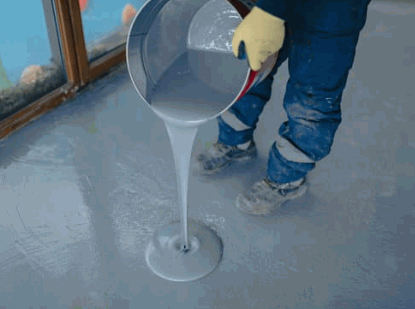
What Are The Factors That Affect The Increase In Home Value?
Several key factors influence the increase in home value attributed to epoxy flooring installations. These include the quality of the epoxy flooring itself, the geographical location of the property, market demand for epoxy flooring, and the initial cost of installation. Each of these elements plays a crucial role in determining the extent of value enhancement that can be achieved.
Self-Leveling Epoxy Floors
Self-leveling epoxy floors are a type of epoxy flooring known for their smooth, seamless finish that is achieved through the unique self-leveling properties of the epoxy material. These floors are ideal for spaces where a flat surface is essential, offering both aesthetic appeal and practical functionality.
One of the standout features of self-leveling epoxy floors is their ability to eliminate imperfections on the surface, creating a sleek and flawless appearance. This makes them highly sought after in settings such as residential homes, industrial warehouses, retail stores, and even healthcare facilities. The seamless finish not only enhances the overall look of the space but also provides a durable and easy-to-clean surface, making maintenance a breeze.
Epoxy Mortar Floors
Epoxy mortar floors are a durable and high-strength epoxy flooring option that combines epoxy resins with graded aggregates to create a robust surface that can withstand heavy foot traffic and impact. These floors are commonly used in industrial settings, garages, and warehouses where durability and resistance to wear are crucial.
One of the key features of epoxy mortar floors is their seamless nature, which makes them easy to clean and maintain. These floors offer exceptional chemical resistance, making them suitable for areas that may be exposed to various chemicals.
Moreover, epoxy mortar floors can be customized in terms of colors and textures, allowing for creative design options while still ensuring a high level of durability.
Due to their high compressive strength, these floors excel in areas with heavy machinery or equipment, providing a reliable and long-lasting flooring solution.
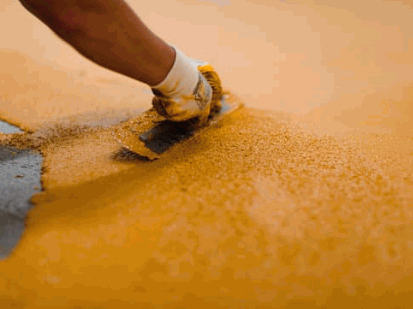
Epoxy Flake Floors
Epoxy flake floors are a decorative epoxy flooring option that incorporates colored flakes or chips into the epoxy coating to create a visually appealing and textured surface. These floors offer both aesthetic customization and enhanced slip resistance, making them a popular choice for residential garages, commercial spaces, and recreational areas.
Epoxy flake floors come in a variety of design options, allowing homeowners and business owners to choose from a wide range of colors and flake sizes to achieve their desired look. The flakes not only add a decorative element but also serve a practical purpose by providing a slip-resistant surface, increasing safety in high-traffic areas. These floors are highly durable, and able to withstand heavy foot traffic, impact, and chemical spills, making them suitable for both indoor and outdoor use.
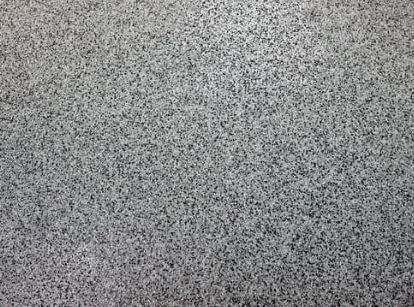
Metallic Epoxy Floors
Metallic epoxy floors are a modern and stylish epoxy flooring option that uses metallic pigments and epoxy resin to create a unique, three-dimensional effect on the floor surface. These floors are highly customizable in terms of color and design, offering a luxurious and contemporary finish for residential and commercial spaces.
One of the remarkable features of metallic epoxy floors is their ability to mimic the look of natural materials like marble or lava, providing a striking visual impact that instantly elevates the aesthetic appeal of any room. The three-dimensional effects achieved through the combination of metallic pigments and epoxy resin add depth and sophistication to the floor, creating a mesmerizing interplay of light and shadows.
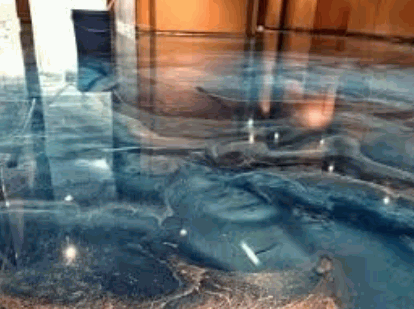
Durability
One of the key benefits of epoxy flooring is its exceptional durability, making it a long-lasting and resilient flooring option for both residential and commercial properties. Epoxy floors can withstand high traffic, impact, and chemical exposure, maintaining their quality and appearance over an extended period.
Due to its resistance to wear, impact, and chemicals, epoxy flooring is highly preferred in environments that undergo heavy use, such as warehouses, garages, and industrial facilities. The protective layer provided by epoxy coatings not only enhances the lifespan of the floor but also reduces the need for frequent repairs and replacements, resulting in cost savings in the long run. The smooth, seamless surface of epoxy floors makes them easy to clean and maintain, requiring minimal effort to keep them looking pristine and well-maintained.
Easy Maintenance
Epoxy flooring is known for its easy maintenance requirements, as the smooth and seamless surface of epoxy floors is resistant to stains, spills, and dirt buildup. Regular cleaning with mild detergents and periodic resealing is typically all that is needed to keep epoxy floors looking pristine and well-maintained.
The durability of epoxy flooring makes it a cost-effective choice for both residential and commercial spaces. The non-porous nature of epoxy floors prevents liquids from seeping in, which not only aids in cleaning but also minimizes the chance of microbial growth. In terms of maintenance tips, avoiding harsh chemical cleaners, using soft-bristled brushes for scrubbing, and promptly wiping up any spills can significantly extend the lifespan of your epoxy floors.
Resistance To Chemicals And Stains
Epoxy flooring exhibits excellent resistance to chemicals and stains, making it an ideal choice for spaces where spills, leaks, or exposure to harsh substances are common. The impermeable nature of epoxy floors prevents liquids and chemicals from seeping into the floor, ensuring easy cleanup and long-lasting protection against stains.
The stain-resistant properties of epoxy flooring not only contribute to the aesthetics of a space but also play a significant role in maintaining a clean and hygienic environment. The seamless surface of epoxy floors eliminates the presence of grout lines or seams where dirt and bacteria can accumulate, enhancing overall cleanliness.
Plus its chemical resistance, epoxy flooring is known for its exceptional durability, capable of withstanding heavy foot traffic, impact, and abrasion. The robust nature of epoxy floors makes them an excellent choice for industrial, commercial, and even residential settings where high performance and longevity are crucial.
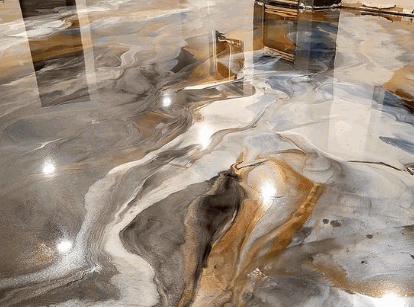
Enhances Aesthetic Appeal
Epoxy flooring not only offers functional benefits but also enhances the aesthetic appeal of interiors with its seamless, glossy finish and a wide range of color options. The smooth and lustrous surface of epoxy floors adds a modern and sophisticated touch to any space, elevating the overall design and visual appeal of the property.
Epoxy flooring is well-known for its design flexibility, allowing individuals to create custom patterns, textures, and effects that suit their preferences and complement the existing decor seamlessly. The ability to incorporate metallic accents or unique designs into epoxy floors adds a touch of uniqueness to the space, making it a popular choice for modern residential and commercial settings alike. Whether it’s a sleek, monochrome finish or a vibrant, eye-catching design, epoxy flooring offers endless possibilities for creating a personalized and visually striking environment.
Attracts Potential Buyers
Epoxy flooring has the potential to attract more buyers to a property due to its modern and high-end appeal. The sleek and polished look of epoxy floors can leave a positive impression on potential buyers, highlighting the property’s attention to detail and quality finish.
Moreover, epoxy flooring is known for its durability and resistance to stains, making it a practical option for areas that experience high foot traffic, such as entryways and kitchens.
This resilience adds to the perceived value of the property in the eyes of potential buyers, assuring them of a long-lasting and low-maintenance flooring solution.
The seamless finish of epoxy floors also creates a sense of continuity and spaciousness, enhancing the overall aesthetic appeal of the space and contributing to a favorable first impression.
Increases Property Value
The installation of epoxy flooring can lead to a noticeable increase in property value, as it adds a desirable feature that enhances the overall appeal and functionality of the space. The investment in high-quality epoxy floors can yield a positive return by boosting the perceived value and market competitiveness of the property.
One key aspect of epoxy flooring installations is the visual transformation they bring to a property. The sleek, glossy surface not only looks stunning but also conveys a sense of modernity and sophistication, which can greatly enhance the property’s aesthetics. This enhanced visual appeal can attract potential buyers or tenants who are willing to pay a premium for a space that exudes such style and elegance.
The durability and low maintenance requirements of epoxy floors can further improve a property’s resale potential. Prospective buyers often appreciate the long-lasting nature of epoxy floors, knowing they won’t have to invest in costly replacements or repairs in the near future. This peace of mind can make a property more enticing in a competitive real estate market.
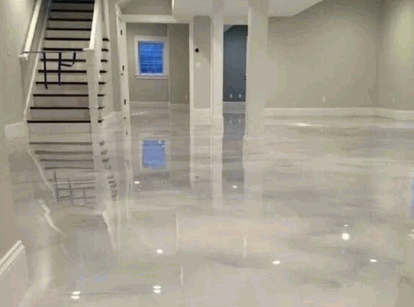
Long-Term Investment
Choosing epoxy flooring for a property is not just a short-term enhancement but a long-term investment that offers lasting benefits and value. The durability, low maintenance requirements, and aesthetic appeal of epoxy floors make them a wise choice for homeowners looking to increase the longevity and desirability of their properties.
Additionally, epoxy flooring is known for its resistance to stains, chemicals, impacts, and scratches, which further contribute to its reputation as a durable and long-lasting solution.
The seamless nature of epoxy floors prevents dirt and debris from accumulating in cracks or crevices, making cleaning and maintenance a breeze for homeowners.
When considering cost-effectiveness, epoxy flooring stands out as a practical choice due to its longevity and the reduced need for frequent repairs or replacements, saving homeowners money in the long run.
Quality Of Epoxy Flooring
The quality of the epoxy flooring used in a property significantly impacts its value and appeal.
High-quality epoxy floors, when chosen for a property, can make a remarkable difference in not only the aesthetic appeal but also the functionality of the space. These floors are known for their durable nature, withstanding heavy foot traffic and maintaining their shine for years to come. Professionally installed epoxy floors exhibit a seamless finish that adds a touch of sophistication to any interior. To preserve these qualities, regular maintenance practices such as cleaning and polishing are essential to ensure the longevity and attractiveness of the flooring.
Location Of The Property
The geographical location of a property plays a significant role in determining the value impact of epoxy flooring installations.
Properties situated in high-demand areas or prime locations often see a more substantial boost in value after incorporating epoxy flooring, thanks to the market’s inclination towards modern and durable flooring solutions. Regional preferences also come into play, as certain locations prioritize sleek and low-maintenance finishes like epoxy coatings.
Location-specific factors such as proximity to amenities, schools, transportation hubs, and commercial centers can further enhance the perceived value and desirability of a property with epoxy flooring. In areas where industrial aesthetics are appreciated, epoxy floors might be particularly sought after, adding both aesthetic appeal and practical functionality to the space.
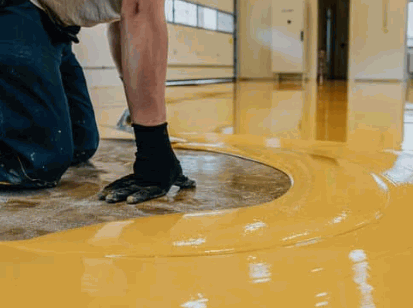
Demand For Epoxy Flooring In The Market
The market demand for epoxy flooring solutions can directly influence the value appreciation of properties with such installations. Properties featuring epoxy floors may attract more attention and interest from buyers in a market where epoxy flooring is considered a desirable and sought-after feature, leading to a potential increase in property value.
Consumer preferences play a significant role in driving the demand for epoxy flooring, as more individuals are drawn to the durability, versatility, and aesthetic appeal of epoxy floors. Evolving design trends influence the choices property owners make when selecting flooring options, with many opting for epoxy due to its modern and sleek appearance.
Industry demand for epoxy flooring materials and services further bolsters the market value of properties with epoxy floor installations. As the demand for these flooring solutions rises, properties featuring epoxy floors tend to stand out in the market, attracting buyers seeking contemporary and low-maintenance living spaces.
Cost Of Installation
The cost of installing epoxy flooring is a crucial factor that influences the return on investment and value enhancement of properties. While epoxy flooring is generally considered a cost-effective and durable solution, the initial installation costs and quality of workmanship can impact the overall value proposition and perceived value increase for the property.
High-quality installation can ensure the longevity and performance of the epoxy flooring, reducing the need for frequent repairs and replacements in the future. This not only saves money in the long run but also maintains the aesthetic appeal of the property, contributing to its overall market value.
The skill and expertise of the installation team play a key role in achieving a flawless finish, which adds to the visual attractiveness of the flooring. Potential buyers or tenants are more likely to appreciate the well-executed installation, which can translate into a higher resale price or rental income.

